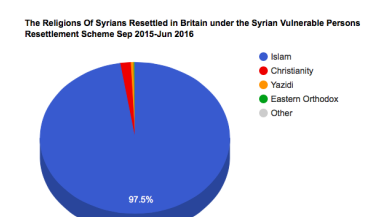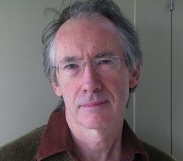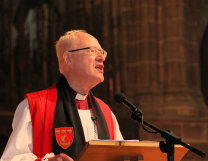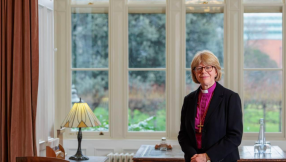Always emotive, frequently controversial – the assisted suicide debate is a fixed reminder of the challenge facing the church today. Proponents argue it is about choice and about the "right to die". Both sides of the debate claim to be the voice of compassion and truth. The pressure for a change to the current law seems to grow with each passing week. But we must not cave in and allow an individualistic worldview to triumph. We stand for life, not death and it is always better to care, not to kill.
Increasingly the language of rights permeates everything. This is especially obvious in the debate around end of life care. Across the United Kingdom, this whole issue has been very much in the public eye. Splashed across tabloids and mentioned across most of the main news channels recently was the story of Jeffrey Spector, who, facing the possibility of being paralysed because of a tumour on his spine, travelled to Switzerland to end his life. Such cases challenge us all to think seriously about dignity, end of life and what decision we might make when it comes to the end.
In Westminster Lord Falconer has again introduced his Physician Assisted Suicide Bill to change the law to allow someone who is terminally ill with six months to live to be prescribed a lethal dose of drugs to end his life. He has called on the government to allow his bill more time after it fell at the end of the last parliamentary session. And while we rejoice that in Scotland, a similar bill was defeated by a clear majority, the margins are closer than ever.
Many of us know of those, sometimes our own loved ones, who have had really bad experiences at the end of their lives. Many, like novelist Martin Amis, agree that "...there should be a way out for rational people who have decided they are in the negative. That should be available and it should be easy. There should be a booth on every corner where you could get a martini and a medal."
Suffering is horrible, and as Christians we want to care and relieve suffering. So surely if a person wants this suffering ended it is their right to choose? This argument is devastatingly simplistic yet cleverly disguises a far more complex reality. It plays upon the emotional trauma many vulnerable people and their families are going through. Yet we let the emotional arguments dominate at our peril.
Physician assisted suicide changes the whole way we care for the dying. It destroys the trust between doctor and patient. The so-called safeguards are not worth the paper they are written on. The vulnerable will be those who are most at risk, being put under pressure to end their lives. We are not talking about a minor change to the law, but a fundamental shift to the way we treat those at the end of their life. But we must get beneath the purely academic discussions; we are talking about individual people, made in the image of God, people for whom Christ died. God's plan for our lives is for our good. He is in the suffering and He has ordained the length of our days.
For every one person wanting to end their lives there are those who fear a change in the law. A friend of mine suffering from Alzheimer's who only the other day expressed his fear that if the law changed others might decide his life was no longer of any value. The mother who rang our offices in tears afraid that when she and her husband were no longer around, their severely handicapped daughter who was always anxious to please, would willingly bow to those who said it would be better for her to end her life.

We may well understand that someone does not want to be a burden on others, but we are designed to be part of others, caring for each other. Dependence is the essence of love. This is a biblical principle. Christian philosopher Joseph Pieper talks of love as a way of affirming the value of someone's life. If we kill them we are in effect saying their life is worthless. In times of increasing economic pressure a right to die could soon become a duty to die.
We must not let the desire to be caring cloud our judgement as Christians. We need to challenge an individualistic view of what it means to be human. Moreover, it is the duty of the law of the land to protect and we must protect the vulnerable who are at risk if physician assisted suicide or euthanasia is legal. How much better to put all our efforts into the care of those who are suffering and their loved ones all of whom are precious to God.
Nola Leach is the CEO of CARE.

















